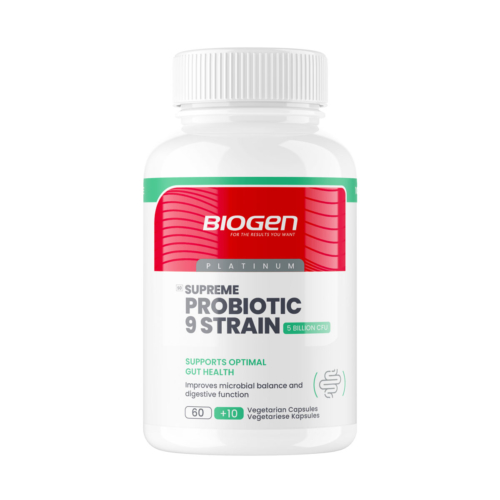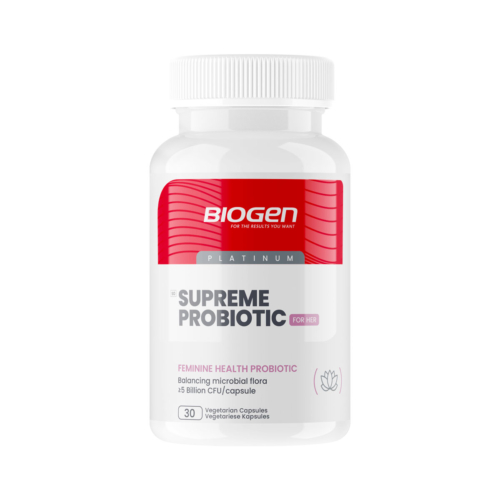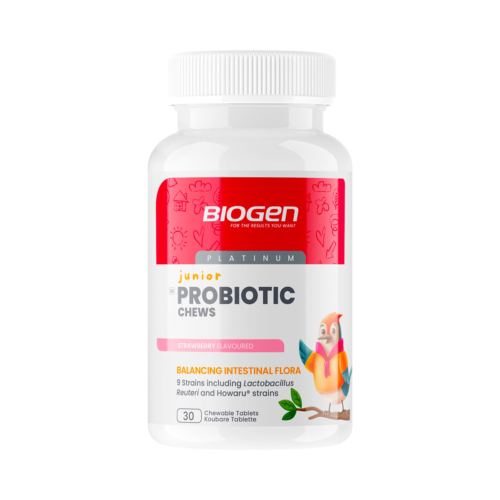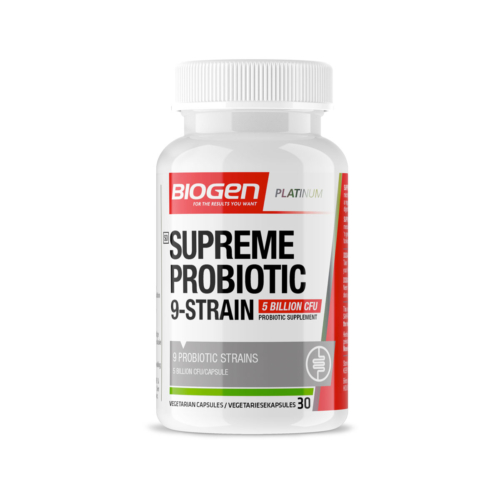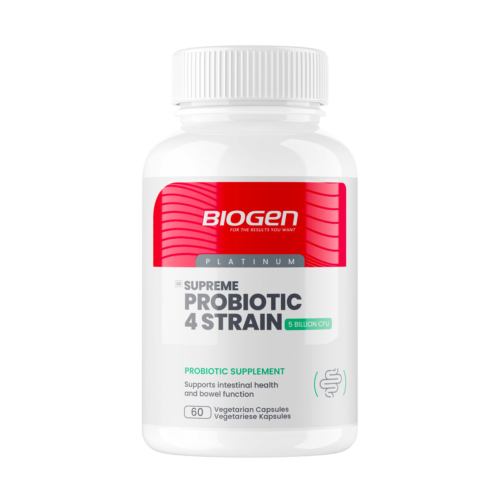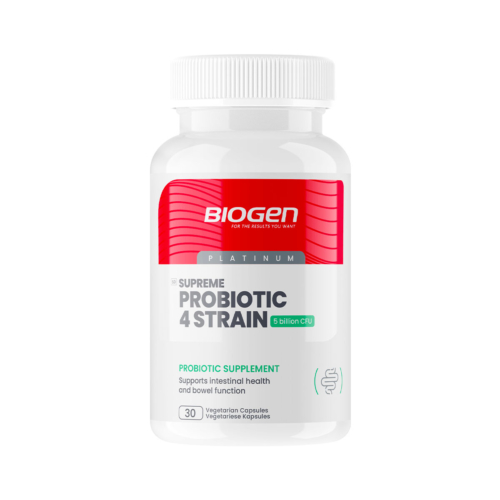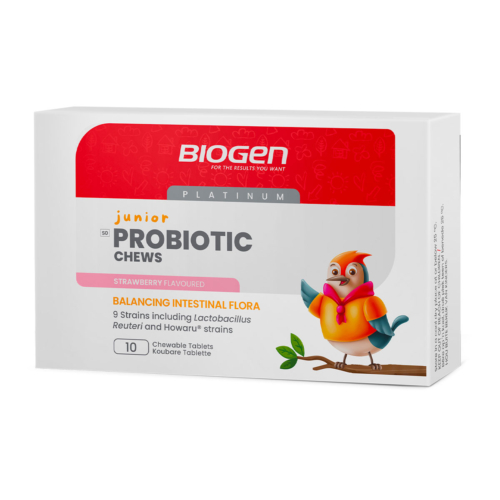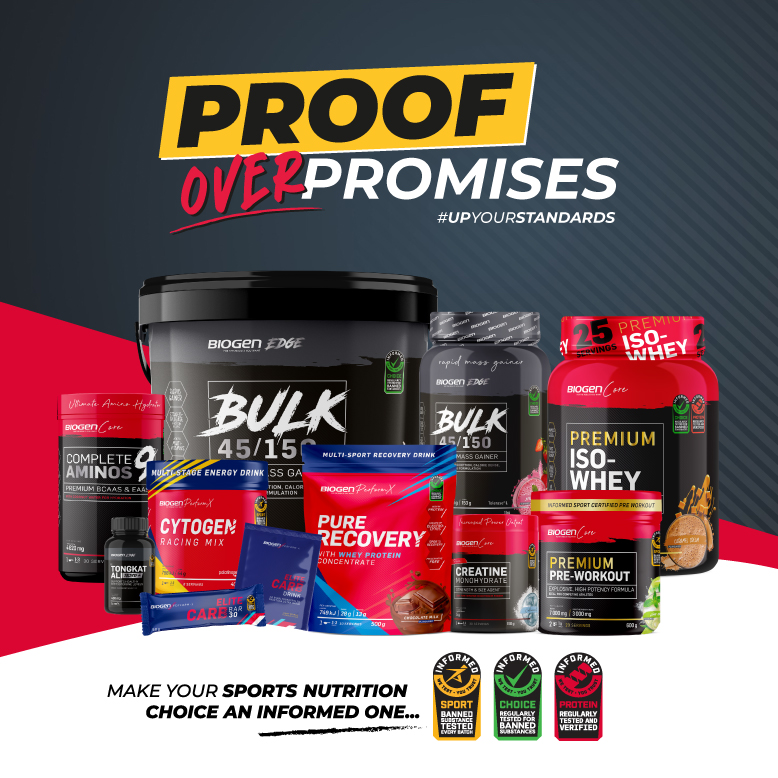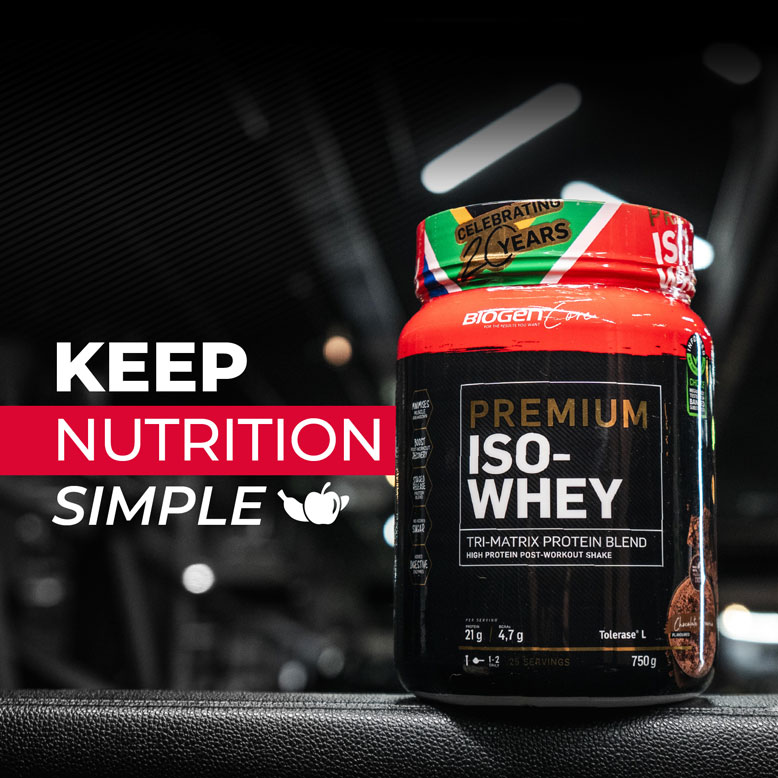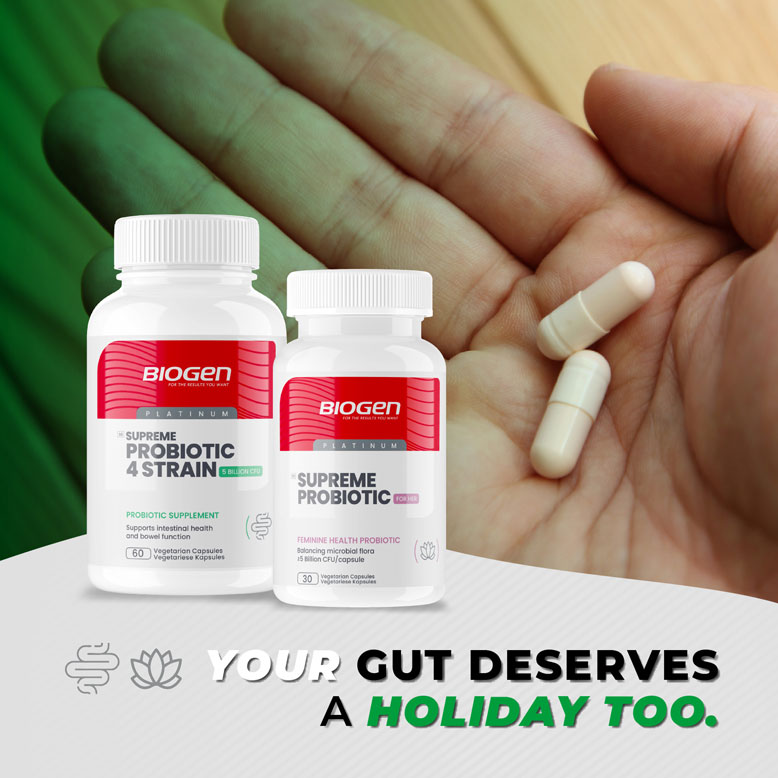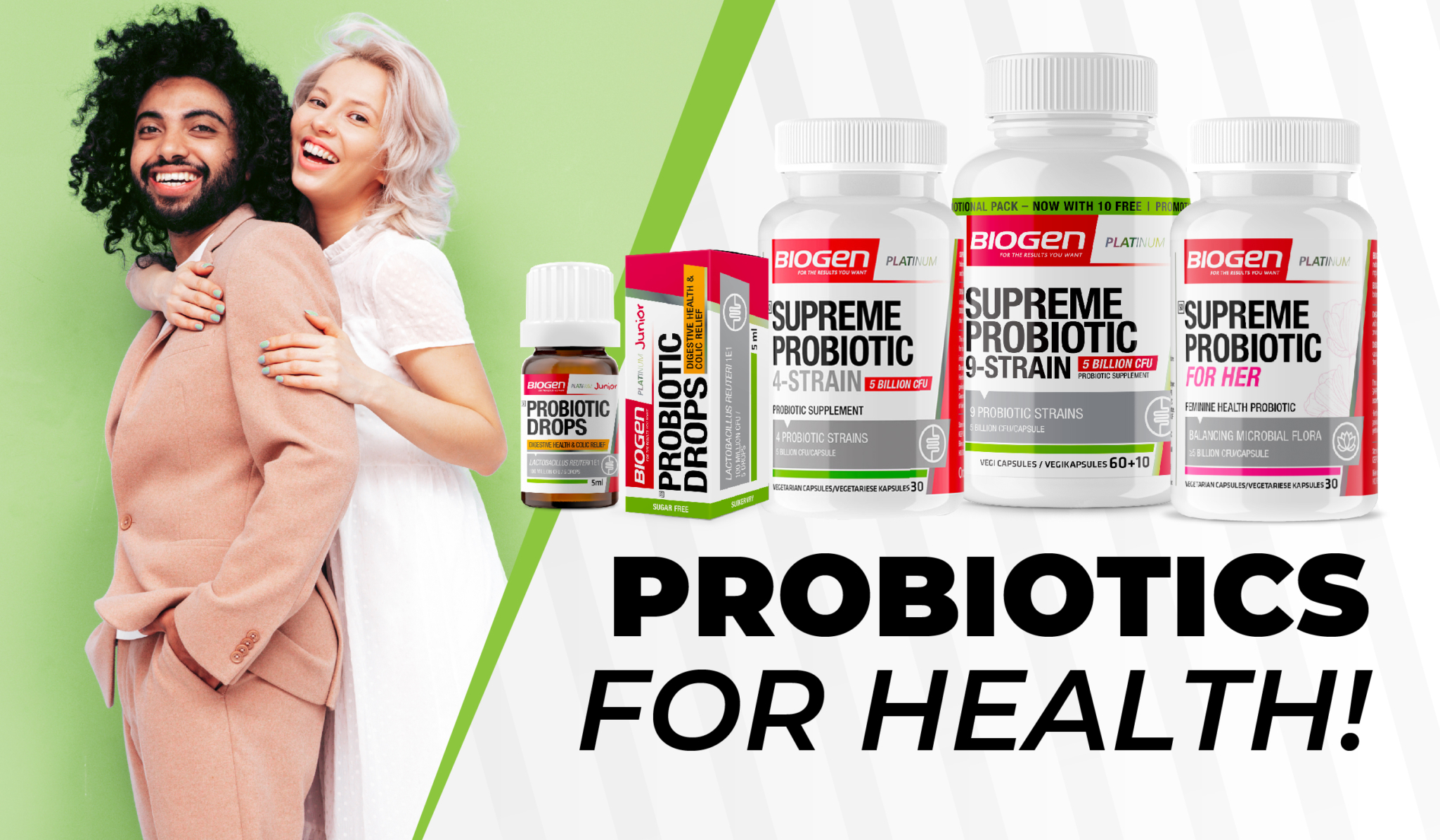
While probiotics primarily support healthy digestion and nutrient absorption, they also play important roles in supporting our immune system.
Backed by an ever-growing body of research, probiotics have a role to play as a valuable tool to support a healthy gut microbiome and a well-functioning immune system this winter.
For the best results, it is vital to use probiotic supplements as part of a healthy lifestyle that includes a balanced diet rich in fruits, vegetables, and whole grains to provide prebiotic material to support probiotic colonies, along with regular exercise and sufficient quality sleep to support a strong immune system.
Biogen Probiotic Range
References:
- Mazziotta C, Tognon M, Martini F, Torreggiani E, Rotondo JC. Probiotics Mechanism of Action on Immune Cells and Beneficial Effects on Human Health. Cells. 2023 Jan 2;12(1):184. doi: 10.3390/cells12010184. PMID: 36611977; PMCID: PMC9818925.
- Xie Z, Zhang G, Liu R, Wang Y, Tsapieva AN, Zhang L, Han J. Heat-Killed Lacticaseibacillus paracasei Repairs Lipopolysaccharide-Induced Intestinal Epithelial Barrier Damage via MLCK/MLC Pathway Activation. Nutrients. 2023 Apr 4;15(7):1758. doi: 10.3390/nu15071758. PMID: 37049598; PMCID: PMC10097264.
- Cristofori F, Dargenio VN, Dargenio C, Miniello VL, Barone M, Francavilla R. Anti-Inflammatory and Immunomodulatory Effects of Probiotics in Gut Inflammation: A Door to the Body. Front Immunol. 2021 Feb 26;12:578386. doi: 10.3389/fimmu.2021.578386. PMID: 33717063; PMCID: PMC7953067.
- Rao RK, Samak G. Protection and Restitution of Gut Barrier by Probiotics: Nutritional and Clinical Implications. Curr Nutr Food Sci. 2013 May 1;9(2):99-107. doi: 10.2174/1573401311309020004. PMID: 24353483; PMCID: PMC3864899.
- Mikulic J, Longet S, Favre L, Benyacoub J, Corthesy B. Secretory IgA in complex with Lactobacillus rhamnosus potentiates mucosal dendritic cell-mediated Treg cell differentiation via TLR regulatory proteins, RALDH2 and secretion of IL-10 and TGF-β. Cell Mol Immunol. 2017 Jun;14(6):546-556. doi: 10.1038/cmi.2015.110. Epub 2016 Mar 14. PMID: 26972771; PMCID: PMC5518813.
- Darbandi A, Asadi A, Ghanavati R, Afifirad R, Darb Emamie A, Kakanj M, Talebi M. The effect of probiotics on respiratory tract infection with special emphasis on COVID-19: Systemic review 2010-20. Int J Infect Dis. 2021 Apr;105:91-104. doi: 10.1016/j.ijid.2021.02.011. Epub 2021 Feb 9. Erratum in: Int J Infect Dis. 2021 Sep;110:337. PMID: 33578007; PMCID: PMC7871912.
- Raheem A, Liang L, Zhang G, Cui S. Modulatory Effects of Probiotics During Pathogenic Infections With Emphasis on Immune Regulation. Front Immunol. 2021 Apr 8;12:616713. doi: 10.3389/fimmu.2021.616713. PMID: 33897683; PMCID: PMC8060567.
- Rocha-Ramírez LM, Pérez-Solano RA, Castañón-Alonso SL, Moreno Guerrero SS, Ramírez Pacheco A, García Garibay M, Eslava C. Probiotic Lactobacillus Strains Stimulate the Inflammatory Response and Activate Human Macrophages. J Immunol Res. 2017;2017:4607491. doi: 10.1155/2017/4607491. Epub 2017 Jul 5. PMID: 28758133; PMCID: PMC5516745.


